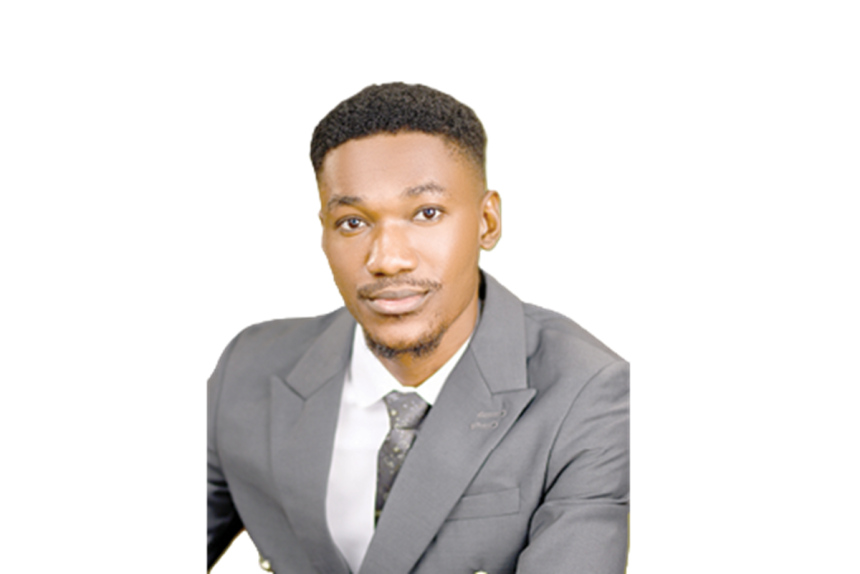Taiwo Olamide Oluboyo graduated from the Faculty of Law, University of Benin, with a first-class honours. He finished in the 2023/2024 academic session with a Cumulative Grade Point Average (CGPA) of 4.55 on a scale of 5. In this interview by KINGSLEY ALUMONA, he speaks about his academic feat and life as a law student
What or who inspired you to study law? What was your idea of law and lawyers before studying law at the university?
My decision to study law was inspired by the stories I heard about great lawyers like the late Gani Fawehimi. I also regarded law as the noblest course I could study, and it aligns with my prospects.
The idea I had about law and lawyers before I got admission to study law was that law is a tough course and would require extensive studying. The idea was later confirmed when I resumed lectures. For lawyers, I had this idea that they are all into litigation (representing clients in courts), but I later discovered that there are diverse areas lawyers can explore aside from litigation.
Some months ago, on your LinkedIn page, you wrote that you wrote the Unified Tertiary Matriculation Examination (UTME) three consecutive times before gaining admission to the university. Why write the UTME three times? Why not choose another course, must it be law?
I have a great passion for law. When I could not secure admission for the course on my first attempt, I was determined to try again and work even harder. I couldn’t trade my passion for studying law for another course.
In fact, I faced stiff opposition at home when I decided to opt for the humanities to study law. My Mum convinced me to opt for the sciences (medicine or engineering), so I could put my good knowledge of mathematics into practice. But I had to make my parents agree with me that law was my dream course and I was ready for all it would take. So writing the UTME three times was part of being ready “for all it would take.”
The delay made me understand life better, even though I was a teenager then. Today, I appreciate the delay I had in getting law. The three-year delay gave me some key and necessary exposures. I learned a lot about life in school from my brothers, friends, and seniors during those years. I drafted a plan of what I intend to do in school, so I came prepared for law, and my preparation made me achieve my goals during my undergraduate studies.
How would you describe the kind of education you had at the University of Benin?
I had a rigorous and enriching education at the University of Benin. I met a great learning culture and was influenced by it. The university and the faculty met my expectations in terms of quality education and innovation. The lecturers in my faculty are very knowledgeable, diligent in their work and always ready to provide quality counselling to students.
What was your first moot court experience like? What did you learn from the first experience?
My first moot court experience was interesting and educational. I learned a lot from it, and it propelled me to learn further and participate in more moot competitions. The moot court case covered different areas of law, but the area I handled was the tort of assault, where I had to argue the English case of Stephen v. Myers. I won the preliminary round of the moot case, but I lost in the semi-finals. From my first moot court experience, I learnt what it is like to represent a client in court, present arguments before judges and practice good sportsmanship.
What aspects or areas of law interest you more and why?
Currently, I have a keen interest in international law. International law is a very broad area of law. So, my interest cuts across the different areas of international law, from international economic law, international criminal law, international finance, and even international arbitration.
ALSO READ FROM NIGERIAN TRIBUNE: Tinubu departs Saint Lucia for BRICS Summit in Brazil
My interest in this field was spurred by my participation in several international law competitions. I learnt a lot about this area of law, particularly how law governs the relations between two or more countries.
What was the title of your final-year project, and what were the major findings from it?
My final-year project topic was ‘An examination of optional protocol withdrawal and the jurisdictional questions arising’. I wrote on how the Optional Declaration Clause of Art 34(6) of the African Court Protocol has been a contentious issue, driving several jurisdictional conflicts regarding its withdrawal status.
You mentioned in your post that “My Dad would urge me on multiple occasions during phone calls while I was in school to ‘bring home a first-class honours.’ Did you make first class because your father asked you to? What was the greatest price you paid to achieve this feat?
Making the first class was primarily my own goal. However, my father played a huge role in enabling me to achieve the feat. His numerous calls, advice, and encouragement consistently kept me on my toes and registered in my mind not to forget the ultimate goal. He was very delighted when he heard about the feat. It was a dream come true for him as well, and I am glad to have made him and my mum proud of it.
The greatest price I paid to achieve this feat was spending countless late nights studying, and the intentional sacrifice of comfort and leisure for disciplined academic focus and personal development.
Apart from academics, what other activities kept you busy in school? Would you consider yourself a social and popular student at your university?
I was fully and actively engaged in several extracurricular activities as an undergraduate. I participated in a large number of moot and mock competitions and won several awards. I also held several leadership roles at each level during my undergraduate programme.
To some extent, I earned the status of being a social and popular student in diverse ways. What made me more popular was my participation in different competitions and winning numerous awards from it. I was nicknamed ‘Bhoyor of Washington’ following my trip to Washington, DC, United States, where I represented my school and Nigeria in the largest moot court competition in the world, a feat rarely achieved by undergraduate law students in Nigeria.
Tell us about your Philip C. Jessup Moot Court and Christof Hynes Africa Human Rights moot court competitions. How has the outcome and experience from the outings shaped your life and career?
The Philip C. Jessup Moot Court Competition is the oldest and largest moot court competition in the world. It is regarded as the world cup of moot court contests. I was in my third year, thus the youngest competitor from my team, when I represented my school and Nigeria in the world round of this competition in Washington, DC, USA.
The Christof Hynes Africa Human Moot Court Competition is also the oldest and biggest moot court competition on the African continent. I was in my final year when I led my team to Kigali, Rwanda, to participate in the international round of the competition.
The experiences and outcomes of these competitions have shaped my life and career in diverse ways. I gained global exposure and access to several opportunities, and also made great connections beyond Nigeria.
A country is as good or bad as its legal system. As someone familiar with the Nigerian legal system, if you were to recommend three things that would strengthen the Nigerian legal system, that would help make the country a better place than it currently is, what would they be?
A nation’s progress is closely tied to the strength of its legal system. To strengthen Nigeria’s legal system and make the country better, I would propose three reforms.
Firstly, there should be true judicial independence that is free from political interference. Judges should be allowed to decide cases fairly, while also being held accountable to ethical standards. Secondly, the widespread issue of delayed justice and backlog of cases should be addressed. This involves reforming court procedures, increasing the number of members of the bench to enable the timely resolution of cases and investing in digital infrastructure. Lastly, Nigerians from rural or underserved areas should be provided access to justice.
After law school, every fresh lawyer has their vision and dreams of what they want to do with their law training. What is the unique thing you want to do with your legal training, and why?
I plan to contribute my quota to legal education and practice, drive policy changes and advance the development of international law practice. My keen passion for law, policymaking and international law is the propellant for these plans.
What is next for you after law school? What kind of lawyer would you like to be? And where do you see yourself in five years?
Gaining practical experience in law practice after law school is a top priority for me at the moment. Afterwards, I might proceed with my master’s and PhD studies. Becoming an international lawyer is also an interest that is growing by the day.
Thus, in five years, I envision myself as a dual or triple-qualified international lawyer. In addition, I would like to work within a common law justice system.
WATCH TOP VIDEOS FROM NIGERIAN TRIBUNE TV
- Relationship Hangout: Public vs Private Proposals – Which Truly Wins in Love?
- “No” Is a Complete Sentence: Why You Should Stop Feeling Guilty
- Relationship Hangout: Friendship Talk 2025 – How to Be a Good Friend & Big Questions on Friendship
- Police Overpower Armed Robbers in Ibadan After Fierce Struggle






